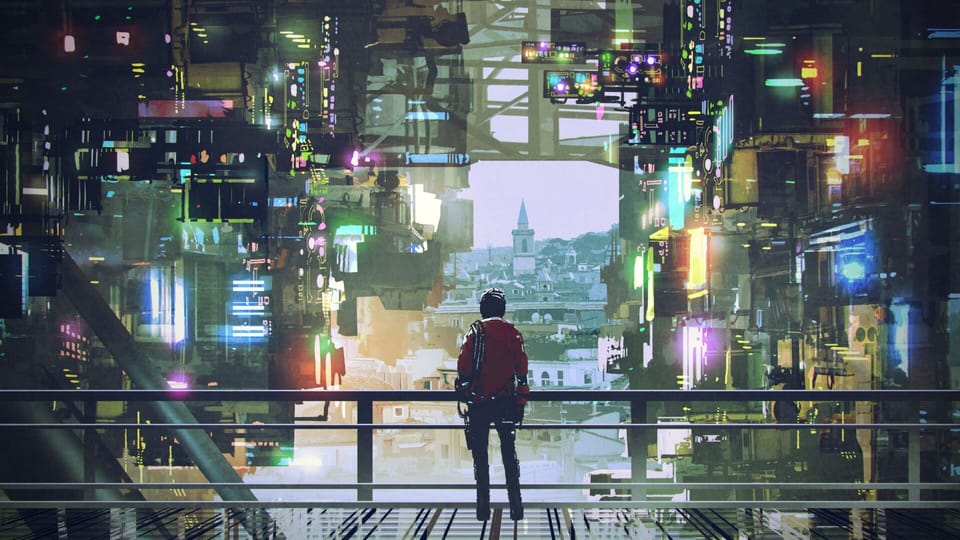The More Things Change

Imagine it’s 1980.
You’re 22 years old, newly graduated from college. You’ve just started at General Motors. You walk into your office and find a steel desk with a typewriter, a rotary phone, and a physical inbox and outbox.
You work hard. After twenty years, you’ve made the jump to computers. You’re laid off in the 2001 recession, but find work with automotive parts suppliers. In 2010, you join a company that’s working on building self-driving cars. In 2015, you rejoin General Motors.
In 2020 you transition to working remotely and learn how to use Zoom and Slack.
In forty years, you’ve gone from a typewriter and rotary phone to Zoom and self-driving cars.
“Here’s a question for you: do you think the next forty years will see more or less change?” asks Paul Millerd, who describes this imaginary worker in The Pathless Path.
I heard a podcast last week that predicted that the rate of change will only accelerate. Along with that accelerated change will come accelerated conflict, the podcast said.
I felt dizzy just thinking about it.
And then I opened Deuteronomy once again.
Deuteronomy was written some 3,400 years ago in a world very different from our own. We’d recognize some parts of their world: we know a little about the Egyptian culture they’d left just a few decades earlier, and we can picture the people in tents just on the other side of the Jordan as they prepared to enter the land God had promised to them.
But they wouldn’t recognize much of our world.
As I read Deuteronomy, I start to think that the world hasn’t changed very much after all. Don’t rebel like those who came before you, Moses says. Keep his commands. Obey him and love him. Be on guard against sin and temptation, especially comfort, which will tempt you to think you don’t need God.
I don’t mean to minimize all that’s changed since Moses spoke to Israel just outside the Promised Land. I’m just trying to highlight what hasn’t changed. God speaks to us as powerfully today as we read these words, even though we live in a very different context.
What do we need to prepare for the change that’s coming? Sure, learn about A.I. and geopolitics. Study sociology and listen to podcasts. Listen to those who are skilled at knowing where the cultural forces are taking us.
But then go back and read words that were written thousands of years ago. Focus on what hasn’t changed even more than you focus on what has. Understand that some things have changed but other things never will, that God has spoken, and that Scripture has more insight into what’s going on in the world than any book written today.
The more things change, the more we need what’s timeless. That’s why I’ll keep learning about new technologies and trends. But it’s also why I’ll give even more of my time to books in the Bible like Deuteronomy, which continue to speak to us in a very different world. Nothing’s more relevant than that which has never changed.






